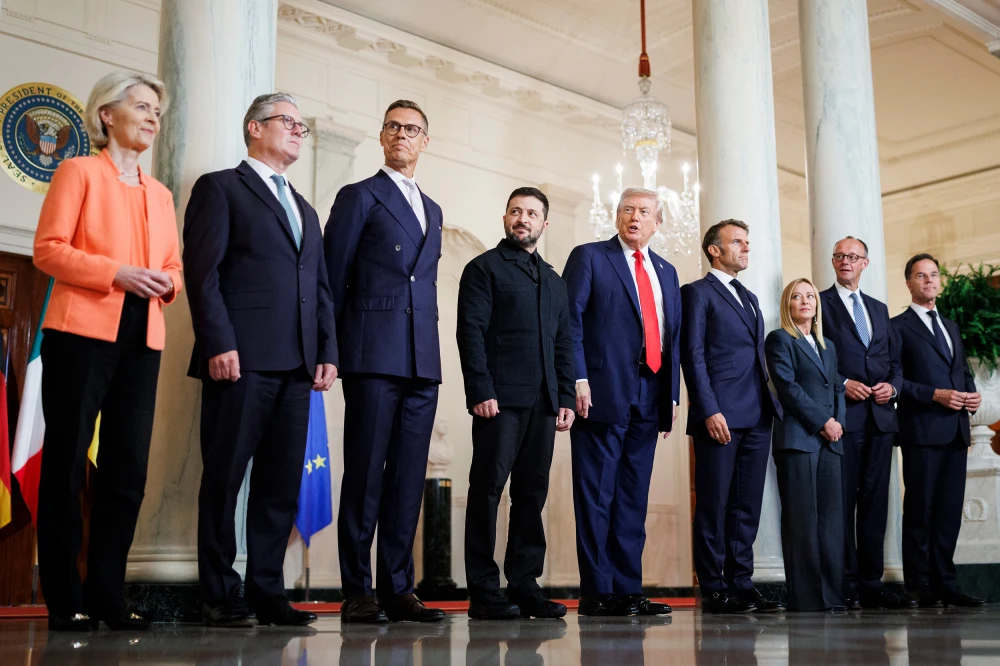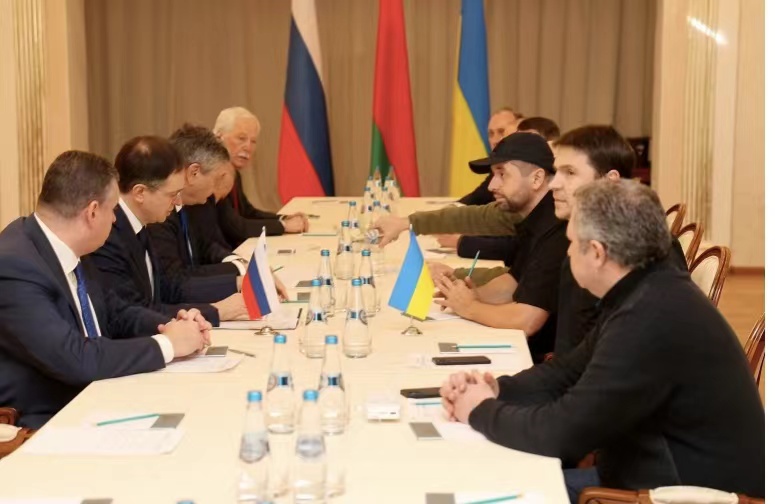One of the apparent issues involved, and what partly explains the cause of the Ukrainian war, is the difference in approach to international politics between Western leaders and the Russians. NATO nations and the American foreign policy elites seem to adhere, sincerely or hypocritically, to liberal ideals about the exercise of international politics. On the other hand, the elites in Moscow and Putin himself seem to hold a realist approach. The effect of this is that Moscow is more pragmatic about resolving the conflict, whereas its Western counterparts are dogmatic.
The final losers in this war will definitely be the people of Ukraine, whose myopic leaders have sacrificed their country as a battleground for big-power rivalry.
Let us begin by remembering the words of American leaders on the issue of expanding NATO eastwards.
When former US President Joe Biden was still a senator, serving on the Foreign Relations Committee in 1997, he stated that the one place where the greatest consternation would be caused in the short term, in terms of US-Russian and NATO-Russian relations, would be the admission of the Baltic states into NATO. He warned that that would tip the balance and induce a vigorous and hostile reaction from Russia. That was in 1997! It was 25 years later, in 2022, that the Ukrainian war broke out. Is it, therefore, right to describe Russia as an unprovoked aggressor?
When, at the 2008 Bucharest Summit, NATO members proposed to integrate Georgia and Ukraine into NATO, the former CIA director, William J. Burns, and former U.S. ambassador to Moscow warned Condoleezza Rice, the U.S. secretary of state then, that the entry of Ukraine into NATO was the brightest of all red lines for the Russian elite, not just Putin. In the secret cable he sent her, he noted that: “In my more than two-and-a-half years of conversations with key Russian players, from knuckle-draggers in the dark recesses of the Kremlin to Putin’s sharpest liberal critics, I have yet to find anyone who views Ukraine in NATO as anything other than a direct challenge to Russia’s interests … Today’s Russia will respond.”
In 2014, when consideration was made to add Georgia and Ukraine to NATO, Jack Matlock, America’s last ambassador to the Soviet Union, testified before the Senate Foreign Relations Committee. He stated, “I consider the administration’s recommendation to take new members into NATO at this time misguided. If it should be approved by the United States Senate, it may well go down in history as the most profound strategic blunder made since the end of the Cold War. Far from improving the security of the United States, its Allies, and the nations that wish to enter the Alliance, it could well encourage a chain of events that could produce the most serious security threat to this nation since the Soviet Union collapsed.”
Henry Kissinger, arguably one of the greatest scholars on international relations the world will ever know, opined in The Washington Post in March 2014 that for Ukraine to survive, it should function as a bridge rather than an outpost of either NATO or Russia. He discouraged Ukraine from joining NATO. He noted that: “Putin is a serious strategist on the premises of Russian history. Understanding U.S. values and psychology is not his strong suit. Nor has understanding Russian history and psychology been a strong point of U.S. policymakers. Leaders of all sides should return to examining outcomes, not compete in posturing.”
Contrary to Kissinger’s wise advice, American and European leaders have instead deployed their media to manufacture the narrative that portrays Putin as a devil, and themselves as saviours. In his own words, Kissinger humorously made a solemn aphorism that “the demonisation of Putin is not a policy, it’s an alibi for not having one.”
In one of the longest, agonising diplomatic negotiations in history, Russia appealed to NATO members not to expand eastwards. President Boris Yeltsin wrote to Bill Clinton in 1993, arguing that the expansion of NATO breached the spirit of the 1990 Two Plus Four Treaty on German reunification. Even as Yeltsin initially conceded to Poland’s campaign to join NATO at the time, he later retracted in the face of domestic pressure. It was 29 years later, in 2022, that the war in Ukraine broke out. So, how can it be reduced to the character of Putin?
In the end, Ukraine will be unable to defeat Russia without American support. Yet America is least likely to invade a nuclear-armed power, as that would spell Mutual Assured Destruction. In the face of that uphill battle, it’s Ukraine that stands to lose. Russia will bleed to the last corporal, but will never surrender to Ukraine. It would be better for the Ukrainian leadership to abandon NATO membership and seek neutrality.
The writer is a senior research fellow at the Development Watch Centre.



